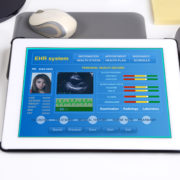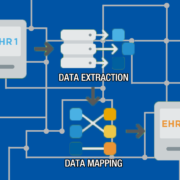4 Trends in Healthcare Technology to Watch
It’s no surprise that the healthcare industry continues to embrace — and adapt to — new technologies as they arise. Implementing such advances helps healthcare providers deliver patient care according to best practice models as well as position themselves for the highest level of reimbursement. Below are four trends in healthcare technology that deserve careful attention as they evolve to better meet the demands of the industry.
1. Artificial Intelligence
Artificial intelligence (AI) and its use in the healthcare industry will significantly impact patient care in 2018. At present, AI is most commonly used to support language processing and robotic automation. Some forward-thinking healthcare organizations are already using it for population health, claims processing, clinical decision support, readmissions and disease management. For 2018, AI will integrate within areas such as image recognition, cancer diagnostics and pathology.
2. Blockchain
Blockchain has been making news in the bitcoin sector for the past several years. It is now making the leap to healthcare. As one of the industry’s hottest technology trends, it remains to be seen exactly who adopts the systems and how they use them as a method to both exchange health data more easily while also providing more security. Not only are federal health IT personnel hopping on board, companies like Google, IBM and Microsoft have dedicated resources to blockchain products.
3. Going mobile
The focus on mobile extends far beyond the personal. This is the year that this technology will make even greater inroads into the healthcare industry. According to Statista, the adoption of personal digital health data by medical professionals will expand beyond tablets and smartphones. It’s projected that the number of wearables that will be in use will top 830 million in 2020 — just two short years away. The Food and Drug Administration (FDA) is also adopting a new approach to digital health that’s more in line with the clinical evidence that supports better patient outcomes when they have more precise information about their own health.
4. EHR Analytics
2018 is the year of EHR systems with their nearly-universal adoption by the medical industry. This paves the way for a more involved stance in terms of patient data analytics. While most EHR systems already boast these capabilities embedded within them, this year will see healthcare providers use this patient data to gauge outcomes while also tying in with lab results, patient insurance claims and other patient-centric information.
Which of the above technologies is your practice working to integrate? Are there any that pique your interest as a method of supporting your goals?
Exscribe EHR is a specialized EHR system with a focus on orthopedic practices and their unique needs. Contact them, toll-free, at (866) 870-1521 or online to schedule a free 30-minute demo.











